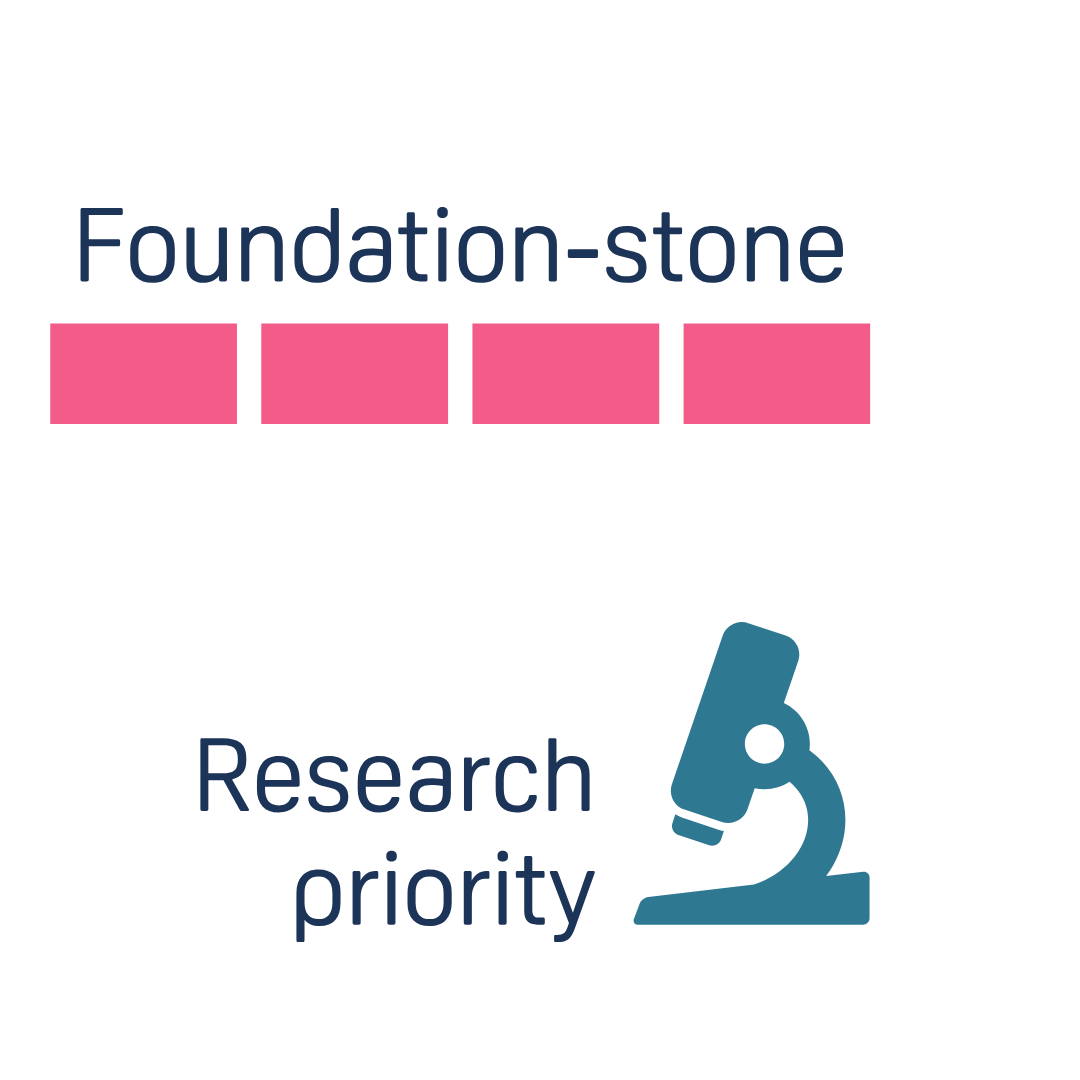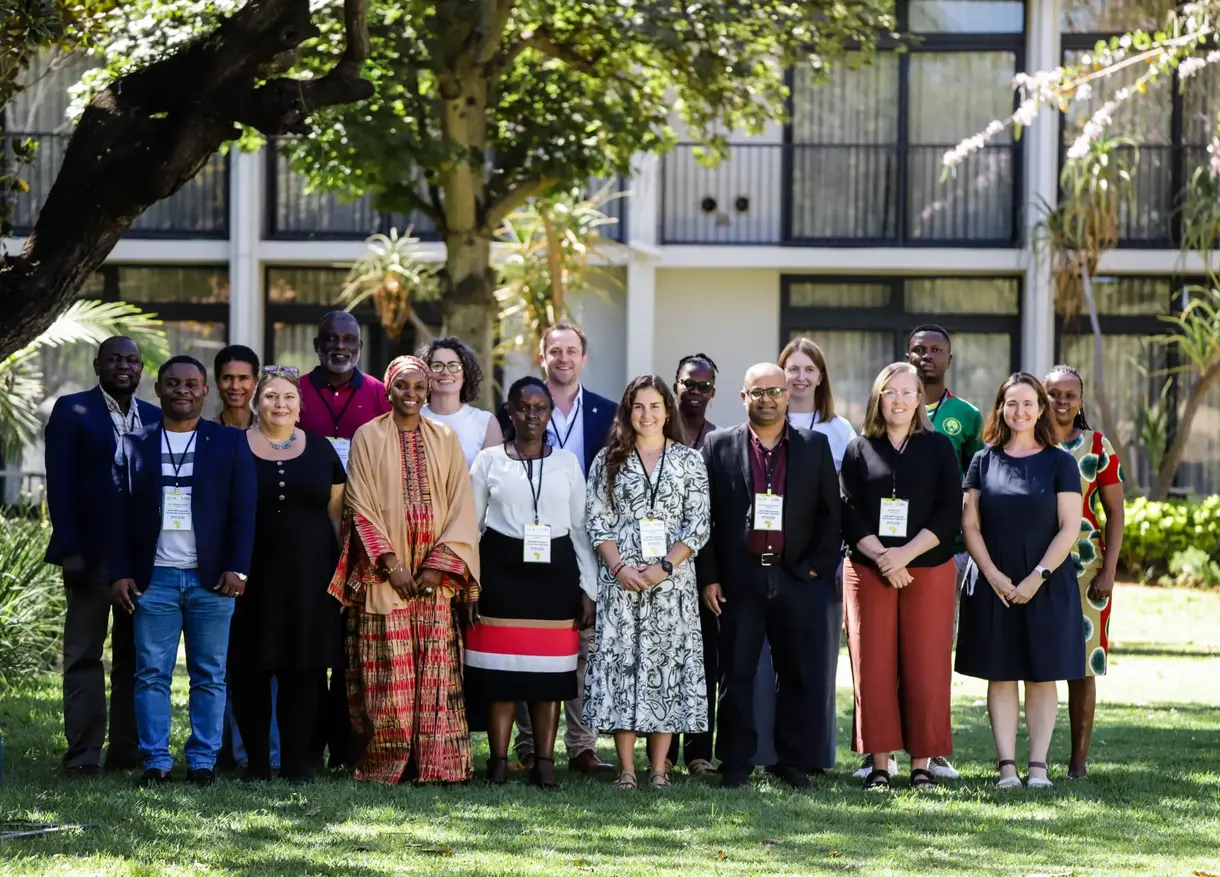
Who we are
The Medical Research Foundation is an independent charitable foundation. Formed by the Medical Research Council (MRC), we support vital medical research in underfunded areas.
Our commitment to planetary health and our approach to environmental sustainability across our research funding and business practices.
Science and research have clearly shown that climate change is a real and rapidly growing threat to human health, the one single thing that the Medical Research Foundation exists to improve and protect.
We will not sit back and watch as the planet’s health declines, and will not make matters worse by our own actions.
Put simply, planetary health is the health of human civilisation and the state of the natural systems on which it depends. This concept was defined in the landmark report by the Rockefeller Foundation–Lancet Commission, which highlights how human wellbeing is inseparable from the health of the planet’s ecosystems.
Climate change - referring to long-term shifts in temperatures and weather patterns, caused by human activities - is leading to a decline in planetary as well as human health.
Because of the rise of the earth’s temperature, there has been an increase in extreme weather and the scale, severity and intensity of natural disasters, like heatwaves, wildfires, floods, storms and hurricanes. These events can cause death, injury, transmission of disease, displacement of communities, loss of homes and livelihoods, and destruction of health infrastructure - like hospitals and emergency services.
Extreme heat itself can have broad-ranging health impacts – causing crop failure, malnutrition, water scarcity, and an increase of non-communicable diseases (diseases like diabetes, heart disease or cancer, that are not transmitted through infection). Heat can also contribute to a rise in vector-borne diseases (diseases spread via insects, like malaria), and water-borne diseases (such as cholera or hepatitis A). Changes to climates will mean that these diseases will occur in countries that have not been exposed in the past, such as the UK.
Increasing levels of air pollution are worsened by harmful emissions, extreme heat, and natural disasters (like droughts and wildfires). This is causing a rise in respiratory infections and disease.
There may be mental health impacts for those experiencing the effects of climate change. Extreme weather events can bring about unemployment, homelessness, and food and water insecurity – all of which can affect mental health. Children and young people are often also unfairly impacted by these events, through disruptions to education, something that is a key social determinant of mental health.
Climate change is also driving forced migration and displacement, which can destabilise communities and economies – increasing political tensions. Many people experience a sense of betrayal due to inadequate government responses, further compounding emotional and psychological strain.
Many of the health impacts of climate change are likely to be more indirect, and therefore harder to measure. Changing climates may force populations to relocate, may have socioeconomic impacts on communities as industries will suffer (e.g. agriculture), and put pressure on healthcare services - all of which could impact people’s physical and mental health.
It remains difficult to accurately estimate the scale and range of this, or the measures that could be put in place to control or eliminate these impacts.
That’s why research on the health impacts of climate change is so vital.
⠀

We know that we need to protect planetary health if we are to deliver on our vision of a world with better health. Our commitment to planetary health is a foundation-stone of our work. In other words, it supports everything we do.
It remains difficult to accurately estimate the scale and range of the health impacts of climate change, or the measures that could be put in place to control or eliminate these impacts. That’s why tackling the health impacts of climate change is a research priority.
This is all detailed in Our Strategy to 2029, where we outline our ambitions and plans for the future.
Our commitment to planetary health and research into the health impacts of climate change feature in our strategy.
Read our strategy
Researchers in sub-Saharan Africa and the UK are working to tackle the health impacts of climate change, thanks to research funding from the Foundation.

Through our Emerging Leaders Prize, we are helping future UK science leaders in climate change & health research to advance their research and careers.
Emerging Leaders Prize⠀
By supporting this concordat, we recognise the need to change how we conduct research and innovation as well as promote wider solutions.Dr Angela Hind and Professor Paul Moss, CEO and Chair, Medical Research Foundation
We are supporters of the Concordat for the Environmental Sustainability of Research and Innovation Practice. The aim of the concordat is to ensure research and innovation continues to play a critical part in understanding how our planet is changing, while helping the sector to act responsibly to protect and promote our environment.
By supporting this concordat, we recognise the need to change how we fund research and innovation as well as promote wider solutions. We are taking shared action now and into the future to reduce and eliminate our own environmental impacts and emissions, and supporting our researchers to achieve the transition to sustainable practices. You can read our letter of support outlining commitment to the concordat.
We are also committed to having planetary health expertise on our Board of Trustees. Dr Susan Simon joined the Foundation’s Board of Trustees in November 2024 as our environmental sustainability expert. She is also a member of the Oversight Board for the concordat.
Medical research is vital for tackling overlooked and underfunded health conditions, but we also recognise that health research has an impact on the environment. We include references to sustainability in our Grant Terms and Conditions and we have developed a signposting resource to help our researchers develop more environmentally sustainable research. Researchers can also request costs within their grant applications to support measures that reduce the carbon footprint of travel.

We do not wish to contribute to declining planetary health through our own actions, and so ensure that environmental sustainability runs through all of our business practices. This includes, for example, divesting from fossil fuels, offering a default green employer pension, only using vegetarian catering, offsetting carbon emissions from flights, eliminating single-use plastics, and reducing stored-as standard for all documentation.
We have put together a short video looking at how we all keep it green at the Foundation and prioritise planetary health through everyday actions.
Our investments
We hold investments in order to generate returns that we use to fund vital medical research. In December 2023, our equity portfolio was divested of its fossil fuel assets. Our investment managers are instructed to pay appropriate regard to environmental, social, and corporate governance matters in the ongoing management of the portfolios.
Personal finance for employees
The default investment fund within our employee pension scheme is Standard Life’s Sustainable Multi Asset Pension Fund. The Fund will invest through other funds, selected from across the industry; these funds will mainly use strategies that take into account the responsible investment issues that can impact fund performance.
Office management
We aim to further reduce the environmental impact of our office by:
- Using no single use plastics
- Using 100% green products
- Moving towards ensuring our office sends no waste to landfill
- Always switching to the greenest energy tariff available
- Reducing energy usage year-on-year
- Ensuring devices such as monitors are turned off after use (see the office sustainability video above for an example of this!)
- Reducing data records in storage (physical and cloud-based) and reducing our printed documentation
Catering
We use vegetarian catering as standard for all Foundation business, with exceptions for specific dietary needs or where vegetarian catering is not offered, such as during some overseas travel.
Reducing environmental impact
We aim to minimise the environmental impact of business travel by:
- Reducing the number of journeys through alternatives like virtual meetings.
- Choosing lower carbon impact modes of travel.
- Offsetting carbon emissions from flights.
Our business travel policy applies to all staff and non-employees travelling for Foundation duties, including our Trustees, Expert Review Panel members and grant applicants invited to interview.
Carbon efficiency
We prioritise carbon efficiency in travel by:
- Making train travel mandatory within Great Britain and between Great Britain and mainland Europe (unless the scheduled train journey will be more than 8 hours or more than double the time of the aeroplane journey, including airport transfers. Where an individual is unable to complete a same day return journey by rail, the Foundation will pay for overnight accommodation).
- Encouraging active transport (walking, cycling, e-bikes, e-scooters)
- Using public transport within cities and towns.
- Only using taxis and ride-hailing when public transport is not feasible.
- Only using privately owned vehicles when necessary and encouraging car-sharing.
- Only using flights on occasions when other transport modes are impractical. Flights are economy class, with business class only permitted for the odd instance where long or overnight flights are needed.
Office Emissions Working Group
Our Office Emissions Working Group brings together staff members who meet regularly to identify ways to reduce carbon emissions in the office. The group has introduced a soft plastics recycling scheme, developed clear signage on waste and recycling, and regularly presents to the wider team to raise awareness and identify ways in which we can all reduce carbon emissions in our daily lives.
We ensure environmental sustainability is at the forefront of all our decision-making by embedding this within our decision-making processes.
